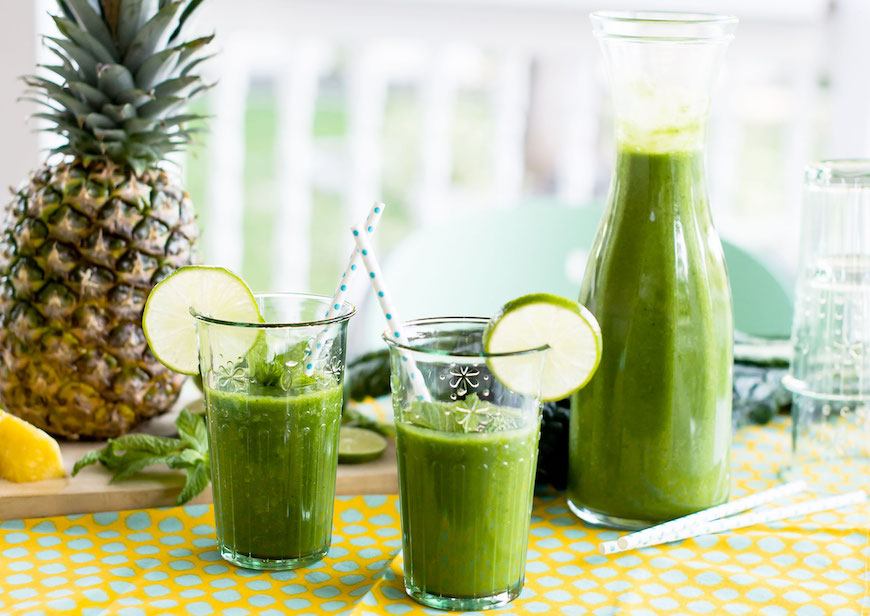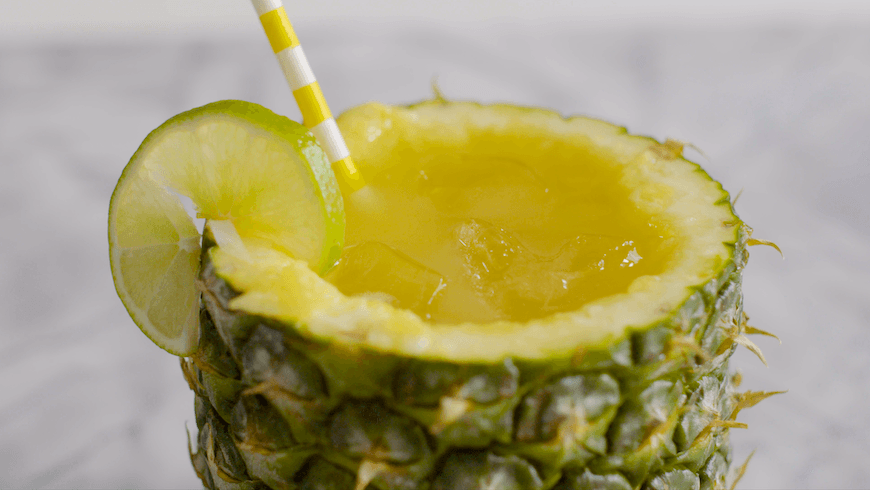How Easy is It to Digest Pinapple
As far as fruits go, buying pineapple can be pretty intimidating. They're literally covered in little spikes. And do you even know how to cut one open? But IMO, pineapple is to fruit what Paris Gellar is to Gilmore Girls: prickly on the outside, but with a sweet center that makes it well-worth the effort.
Because it's a tropical fruit—grown in dreamy locales such as Costa Rica, Brazil, and the Philippines—pineapple brings vacation vibes to pretty much anything you make: smoothies, fruit salads, burgers. It doesn't hurt that the summer treat is rich in health benefits, too. Rounded up here are six big ones, explained by registered dietitian Holly Layer, RD, writer of the aptly named blog, The Healthy Pineapple.
What are the health benefits of pineapple?
1. They are great for gut health. According to Layer, pineapple can help reduce bloat as well as prevent other tummy troubles. "Pineapple is unique in that it is our only source of dietary bromelain, which is a digestive enzyme that helps break down protein foods," she says, explaining how the fruit helps aid the digestive process. "It also contains fiber—about two grams per one cup of cut-up fruit, which also helps with digestion," she says.
2. They're hydrating.Another reason why pineapples are such an amazing fruit to snack on during the summer is because they have a high water content; between 85 and 89 percent of pineapple is water. You already know how important it is to stay hydrated—this is one food that can really help. (Along with your regular water drinking habits, of course!)
3. They could help you fall asleep. Pineapples contain 20 milligrams of magnesium per cup of sliced chunks (about 6 percent of your recommended daily intake), which benefits the body in a myriad of ways. "Magnesium helps regulate blood pressure, nerve and muscle function, and it transports potassium in the body," Layer says. An especially good reason to have pineapple for dessert: its magnesium content could help you sleep better.
4. They contain potassium. Another important nutrient pineapples contain is potassium (180 milligrams per cup, about 7 percent of what you should be getting in a day.) "Eating high-potassium foods can help lower blood pressure," Layer says. It's also an important electrolyte that assists with muscle and kidney function.
5. They're good for your immune system. Because of pineapple's high vitamin C content—79 milligrams per cup of chunks, which hits your recommended daily allowance in one serving—it's here to keep annoying summer sickness from getting in the way of your fun. One study found that kids who ate pineapple regularly got sick less than kids who didn't.
3 easy ways to try pineapple (besides just eating it raw)
Once you get past the thorny exterior, there's a lot you can do with pineapple, says Layer. "I love how versatile pineapple is," Layer says. "It's very sweet, so using it to flavor smoothies and yogurt is an excellent way to eat it. It's also great with savory dishes, like jerk chicken or with ham on pizza—my favorite kind!" But if you need some more inspiration, here are a few pineapple-forward recipes to try at home.

1. Throw it in your smoothie
Give your green smoothie some natural sweetness by including some gloriously juicy chunks of pineapple. This recipe also has kale, mint leaves, coconut water, and lime juice. Talk about a glass full of tropical vibes!

2. Work it into your happy hour
Pineapple can play a starring role in your after-hours sipping too. Besides pineapple, this cocktail recipe includes mezcal, turmeric, and lime juice. As far as alcoholic drinks go, this one is pretty darn healthy.

3. Top off your burger with it
Krystle Anne Pascual, the vegan food blogger behind Minty Anne, loves including fruit when building her veggie burgers to add sweetness. (Ketchup, who needs it?!) Pro tip: add some balsamic vinegar for a final touch.
ICYMI: Pears and mangos are full of health benefits, too.
Source: https://www.wellandgood.com/benefits-of-pineapple/
